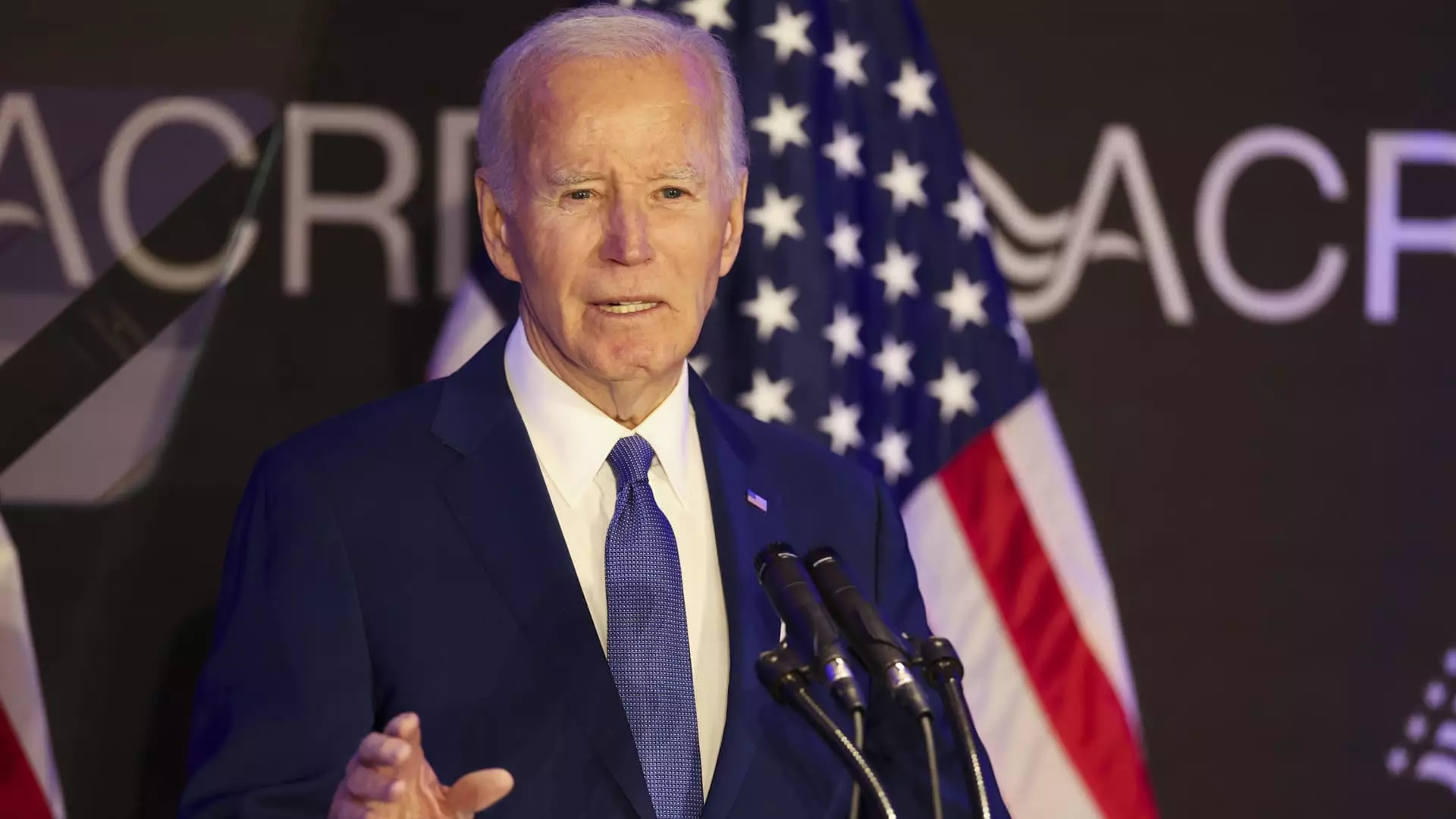The announcement of former President Joe Biden’s prostate cancer diagnosis has sent shockwaves through both the political arena and the hearts of Americans. Diagnosed with a high Gleason score of 9, indicating an aggressive form of cancer that has metastasized to his bones, this news illuminates not only the challenges of personal health but also the haunting specter of age and capability in a leader of the nation. At 82, Biden’s health has been a focal point of concern for voters, and news of this diagnosis only amplifies those worries. In the realm of politics, health status often becomes synonymous with strength, vigor, and, crucially, the ability to govern effectively.
The repercussions of Biden’s health issues are not simply personal; they weigh heavily on the political landscape. The stakes are inherently high, as his diagnosis may fuel concerns about the adequacy of his leadership. The question that looms large is whether an aging leader battling cancer can adequately address the pressing issues of a nation that is deeply divided, politically and socially. This question is particularly poignant given the national tensions surrounding leadership effectiveness, with many citizens feeling that age should be a primary factor in selecting their representatives.
Public Responses: A Reminder of Humanity in Politics
In an unexpected display of humanity, even political adversaries have rallied around Biden during this tumultuous time. Former President Donald Trump expressed sorrow over the diagnosis, urging for a speedy recovery. This humanization of political foes underscores a significant, albeit rare, moment of bipartisanship that transcends the often petty squabbles characteristic of contemporary American politics. Vice President Kamala Harris’ heartfelt words further emphasize the personal stakes involved; her description of Biden as a “fighter” reflects a collective hope for resilience in the face of adversity. However, this optimism raises questions about whether the emotional support extended to Biden is merely a façade that conceals the underlying anxieties regarding his capabilities as a leader.
While it is commendable that leaders across the spectrum are extending their well-wishes, one cannot overlook the implausibly high expectations placed on a man already seen as frail. The notion that Biden might face this challenge with “strength, resilience, and optimism” is not just a statement of encouragement; it’s a burden that cloaks the reality of his situation. The fantastic ideal of durability in leadership clashes starkly with the realities of aging and chronic illness, reminding us revealingly that empathy is often tested under the weight of real-life concerns.
Policy Implications: The Cancer Moonshot and More
Biden’s diagnosis comes at a poignant time as his administration has prioritized a “cancer moonshot,” aimed at halving cancer death rates over the next 25 years. This initiative is deeply personal for Biden, particularly in light of his late son Beau’s battle with brain cancer. However, as he contemplates treatment options for his own condition, it is imperative to scrutinize whether this mission can truly be effective when its chief proponent is grappling with the same devastating illness. Will the impetus for action remain potent, or will Biden’s personal struggles overshadow the urgency required for such an initiative?
This intersection of personal tragedy and political aspirations raises ethical questions regarding leadership and vulnerability. Are we entrusting the future of cancer care initiatives to a leader who may no longer be able to advocate unreservedly due to personal health concerns? The juxtaposition of Biden’s plight against his administration’s goals begs a critical examination of the efficacy and sincerity of our political narratives.
The juxtaposition of personal health struggles with the acts of governance reveals the precarious nature of politics. While the country grapples with divisive issues like healthcare reform and climate action, the health of its leaders looms large, creating an unsettling yet necessary dialogue over their capacity to govern. In the face of Biden’s diagnosis, the nation stands at a pivotal moment, beckoning a fundamental reevaluation of how we perceive health, age, and leadership in America.


Leave a Reply